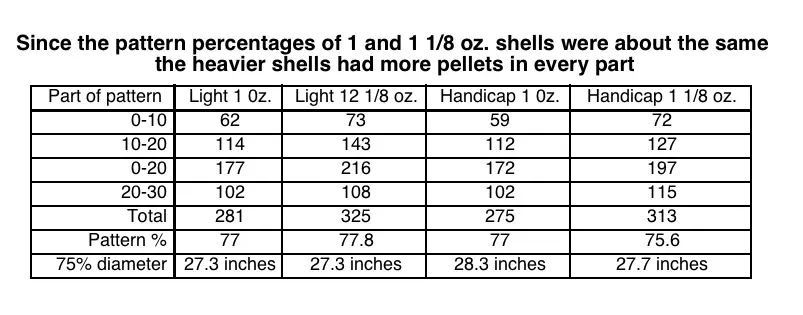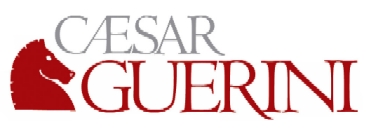Everything You Might Not Want to Know About Shotgun Patterns
Clay pigeons are not made of clay, dram equivalent doesn't mean anything specific, muzzle velocity is not muzzle velocity (it is three foot instrumental velocity), barrel length over 26 inches generally reduces velocity, and there is no such thing as a “good” pattern or a “nice” pattern, the human eye cannot possibly read breaks, and we don't have a clue as to what pressure our factory shotshells are actually loaded to, and shotstring is completely unimportant. Welcome to the land of mirth and mystery: the pattern that a shotgun throws.
A higher efficiency pattern isn't going to make you a better shot and your scores may not go up dramatically: they may go down. John Brindle wrote years ago that you can't get much more than an 18 inch effective pattern out of a 1-1/8 oz. shotshell. Many, many shotguns do not shoot at all close to point of aim. As a result, if your shotgun throws excessively high (SBE3 is a recent example) a higher efficiency choke tube may cause your scores to drop dramatically.
An excessively open, less dense pattern can cost you birds and can cripple game, but if you are breaking things with the lowermost 1/3rd of your pattern, of course your scores tend to go down with a denser pattern. More than a few turkey hunters (that didn't bother to pattern their shotguns) have been successful with a “Modified” choke, yet have lost birds with a dedicated turkey choke. A higher efficiency, denser pattern doesn't do you much good if you are throwing it a foot over your target.
The best choke tube ever made cannot take a low-antimony shotshell into a high quality shell. Unfortunately, we can't cheat the system. Currently, there are three brands of factory lead target shotshells that have hard shot and give the highest percentage patterns: Remington STS / Nitro 27 shells, Winchester AA's, and Federal Gold Medal. They run at 5% antimony or higher hardness levels. When antimony is added, you get more pellets per ounce as well for the same shot diameter, as antimony weighs less than lead. You can't easily form a pattern from pellets that were never loaded into the shell in the first place.
Neil Winston conducted extensive testing of Remington STS loads. Neil's results show that there is no substitute for payload, after you arrive at high-antimony shotshells.
The high-quality shotshell market is a comparatively small one, as is the target shotshell market. Far more shotshells are used the first week of dove season than for the entire year of clay target sports. Comparatively few shooters use high-antimony shotshells for clays or for hunting. It is quite understandable, for buying the cheapest shell or what is on sale, or just readily available locally is not exactly a new idea. People buy far more Remington Gun Club loads than STS loads and far more Federal Top Gun shotshells than Gold Medals and always have.
It is the same way with hunting. Tom Roster carped a bit about the Nilo Farms testing that used buffered lead Winchester shells on mallards with the Mark V collar, suggesting that those loads were “too good” and not representative of common lead shells used back in the day for duck hunting. Tom had a point, for the cheaper things that go bang generally do the big sales numbers.

The most efficient shotshells from the 2016 testing by Neil Winston were Remington 6% antimony 1-1/8 oz. #7-1/2 STS loads that did 77.9% @ 40 yards, 10 shot average, Full choke. These were the most efficient shotshells tested from several brands.
Neil
Winston also tested the 4% antimony Remington American Clay &
Field 1-1/8 oz. #7-1/2 loads: the ten shot average was 74.3 % pattern
efficiency in a 30 inch circle at 40 yards. Your results will vary,
but the best available version of the truth is that the Remington
American Clay & Field shells get you within 3% or so of the
pattern efficiency of the top of the line STS loads. The results of
my testing show them to be within 2% on average, at 40 laser-verified
yards, with a .033 inch constriction choke.
On average, you'll get at least 15% more pellets in the 30 inch circle at 40 yards with a .035 inch choke by using high-antimony shotshells versus softer, chilled shot loads. That is significant, for who wants a 1-1/8 oz. shotshell that actually puts less pellets on the board than a high-antimony 1 oz. load?
Copyright 2017 by Randy Wakeman. All Rights Reserved.












